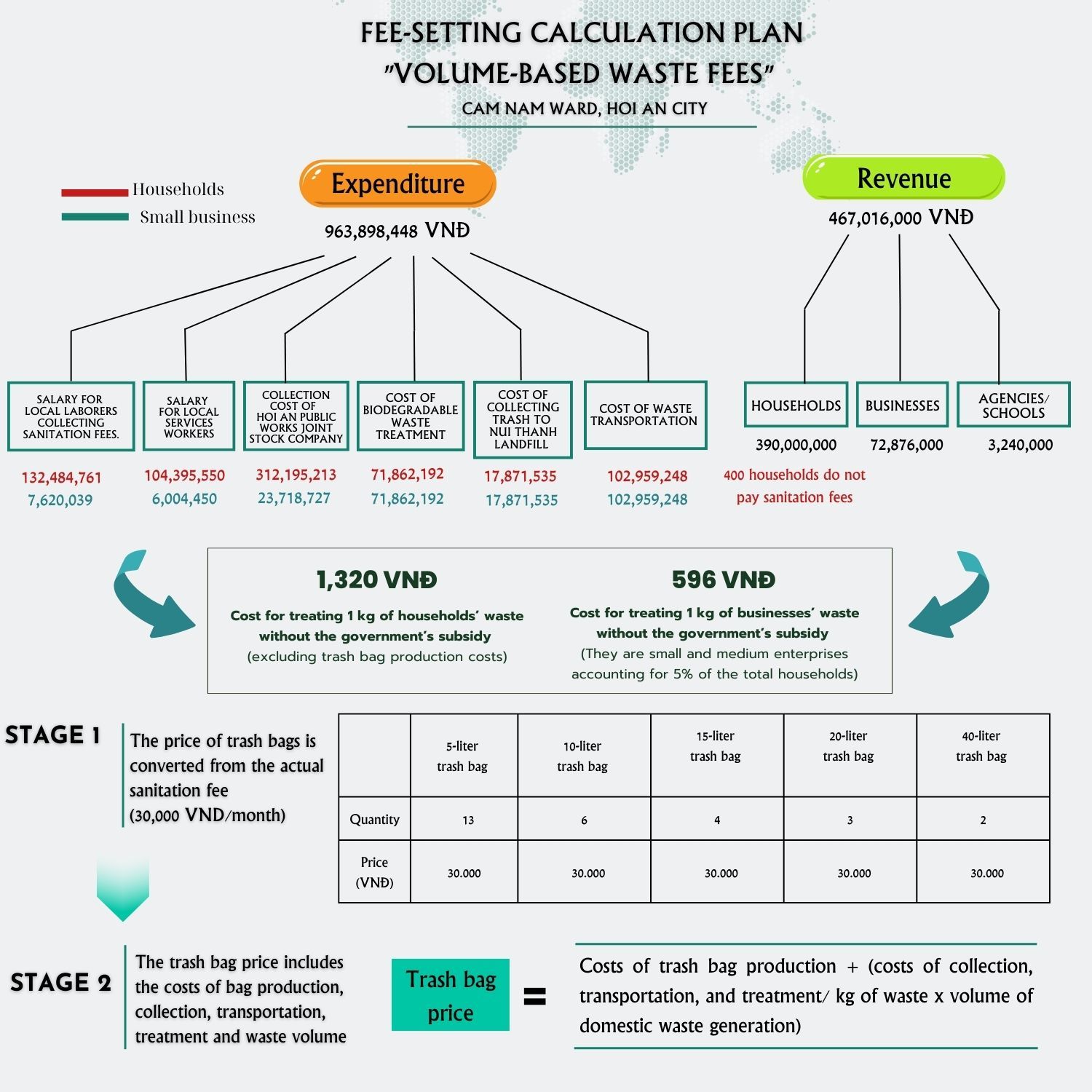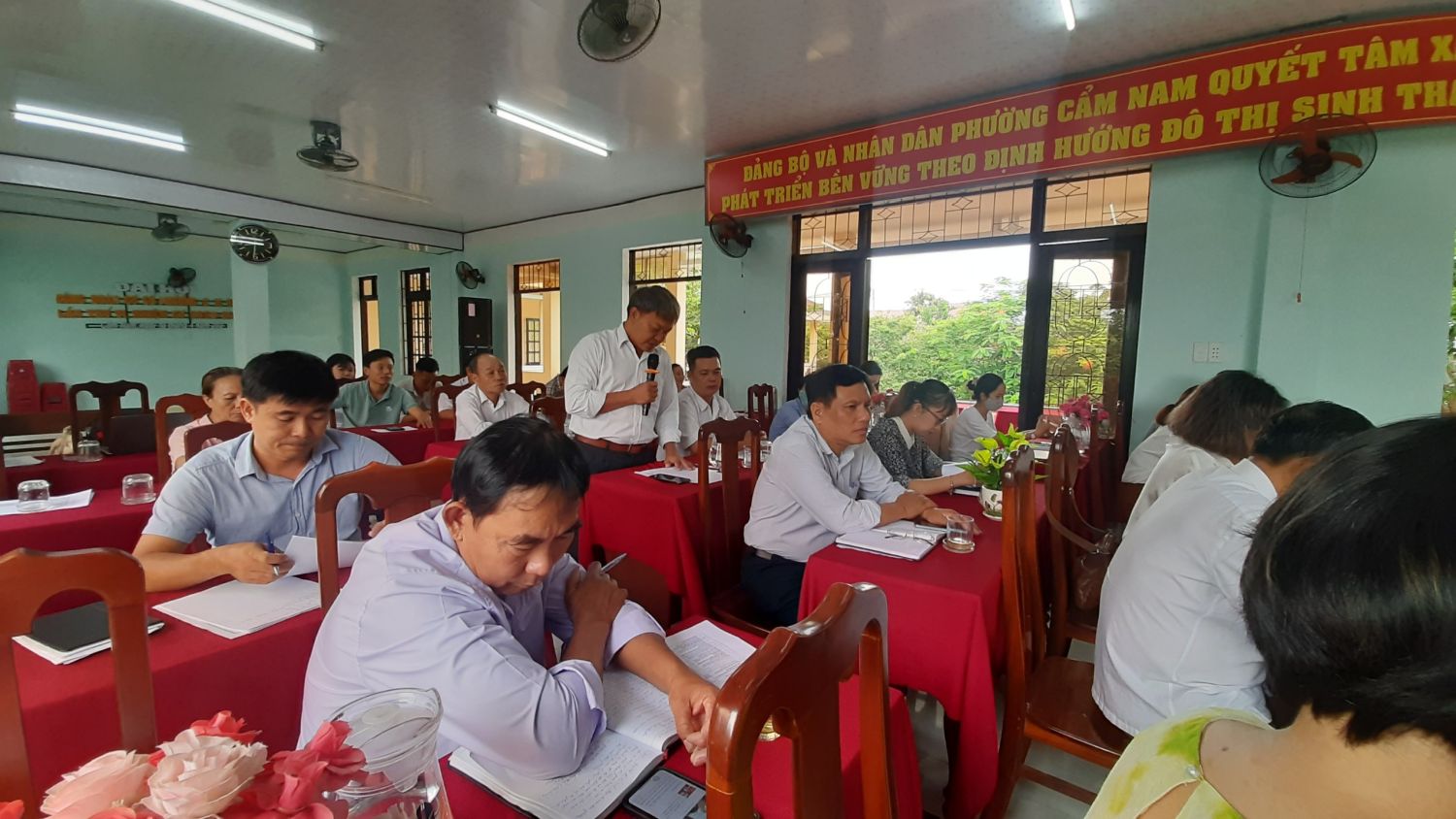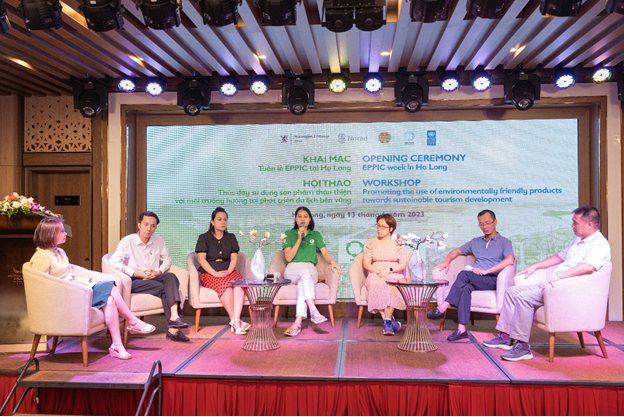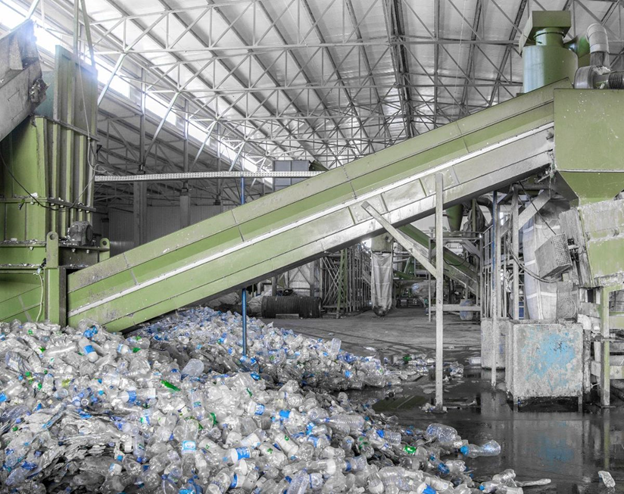Piloting volume-based waste fees in Hoi An, Viet Nam
IUCN
UCN and PRO Vietnam piloted volume-based waste fees in Hoi An, a top tourist destination in Quang Nam Province, in 2022-2023. In a meeting on 30 August 2023 to review the phase 1 pilot activity in Cam Nam ward, the Hoi An People’s Committee Vice-Chairperson Nguyen The Hung praised Cam Nam’s efforts and suggested expanding the program.
The 2020 Viet Nam Law on Environmental Protection (LEP), which came into force in January 2021, includes new regulations on solid waste management. Article 75 stipulates that municipal solid waste from households and individuals must be separated into food waste, reusable and recyclable solid waste, and other waste. Article 79 stipulates that households and individuals must pay based on the weight and volume of their waste no later than 31 December 2024. Volume-based fees have been widely used in Europe resulting in a significant reduction in waste.
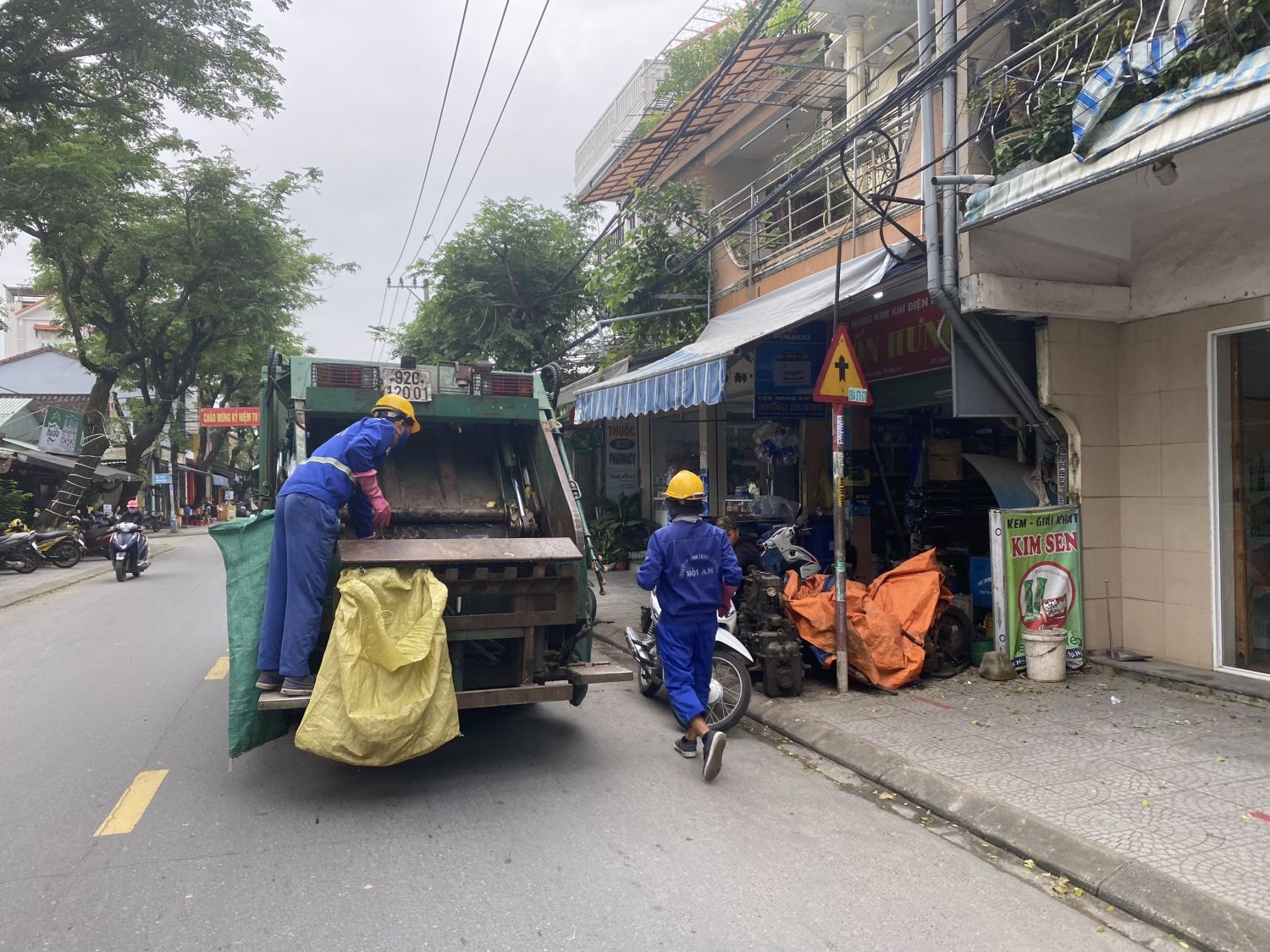
The 31 December 2024 deadline is approaching but local authorities are struggling to implement these articles in the absence of implementation guidelines from the Ministry of Resources and Environment (MONRE).
In 2022-2023, IUCN in cooperation with the Packaging Recycling Organisation Vietnam (PRO Vietnam), which brings together most of the major national and international food and beverage companies in Viet Nam, decided to pilot volume-based waste fees in Hoi An, one of Viet Nam’s top tourist destinations located in Quang Nam Province.
In June 2022, Quang Nam Provincial People’s Committee (PPC) approved the pilot in principle. In April 2023, Hoi An City People’s Committee (CPC) issued plan No. 947/KH-UBND, which allowed IUCN and Building Up Sustainability (BUS), a local NGO, to start the pilot in Cam Nam Ward in Hoi An. Nowhere in Viet Nam has yet tested volume-based fees for domestic solid waste so this pilot is of national significance.
In most cities, households are charged a flat waste collection fee of 25,000-30,000 Viet Nam Dong (VND)/household. This is a problem for two reasons. First, since the fee is flat, there is no incentive for households to reduce waste, and second, the fee is too low to cover the waste management costs, let alone investment in more advanced waste treatment.
Nationally, 70% to 90% of the cost of solid waste management is provided as a government subsidy to state-owned companies, so households pay a very small portion of the actual cost. Modernising Viet Nam’s solid waste management system will require major investment, most of which will have to come from increased user fees. According to a 2018 World Bank study, waste collection fees in Hanoi need to rise to 250,000 VND/household/month to finance a moderately efficient solid waste management system.
Cam Nam Ward was selected as the pilot site for several reasons. It has high domestic solid waste separation rates, enjoys strong political support, is unaffected by solid waste leakage from surrounding areas as it is separated from the city by a 200 meter bridge, has adequate waste collection infrastructure, and many households are involved in composting and recycling.
The pilot is conducted in two phases. Phase 1, which ran from April to August 2023, covered 450 households but only 187 households agreed to join. The graph shows how the number of participating households increased rapidly after extensive communication and consultation by BUS and local government. Phase 2 will cover all 1,600 households in Cam Nam.
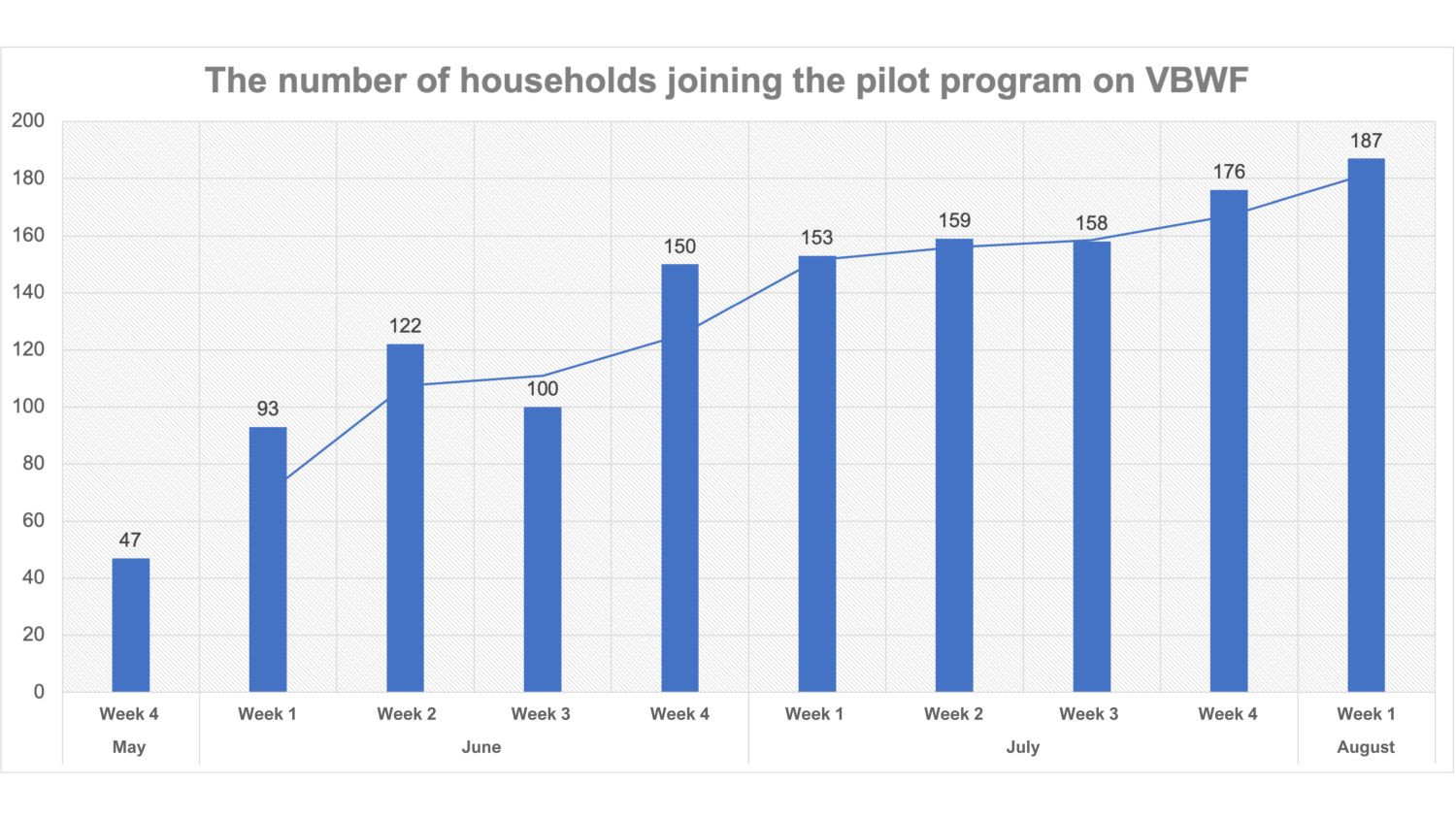
The purpose of phase 1 was to calculate solid waste volume and weight per household, to decide on the use of bags or drums to collect trash and set an appropriate volume-based fee. This was accomplished in three steps, as shown in the infographic below.
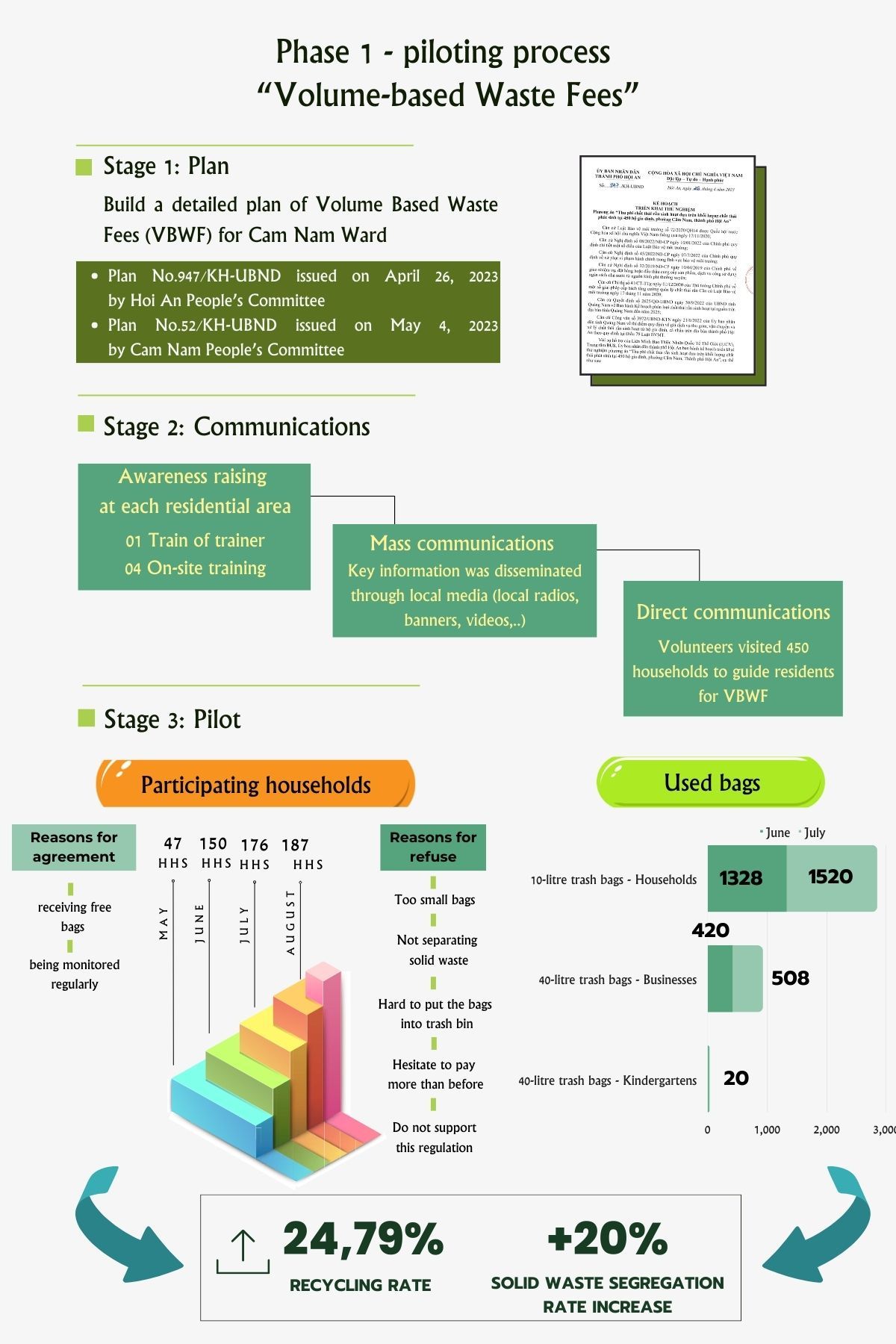
Hoi An CPC provided participating households with 5-, 10-, 15-, 20-, and 40-liter plastic bags for food and non-recyclable waste for free. See photo. Hoi An Public Works company collects this waste four times/week. The third category of waste, recyclable non-organic such as bottles and cans, was transferred by some households to designated Material Recycling Facilities collection points or 54 “Ngoi Nha Xanh” (recycling houses) that specialize in waste separation. Other households sell their recyclable non-organic waste directly to waste pickers.






